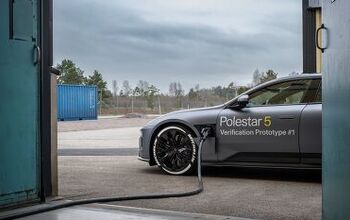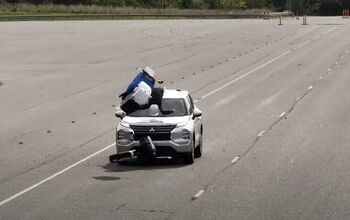Report: Autonomous Vehicles Radically Altering Landscape In Coming Decades
Seven years from now, commercial and industrial autonomous vehicles could set a path toward a a future where the cityscape and beyond are radically changed.
According to Detroit Free Press, a report by consulting firm McKinsey titled “Autonomous Driving — 10 Ways in Which Autonomous Vehicles Could Reshape Our Lives” forecasts as much, with the outcome being that most vehicles on the road within the next few decades will be autonomous. Automotive practice chief Hans-Werner Kaas explains:
Autonomous vehicles will have a gradual step-by-step adoption. First, there will be pay-per-usage models. These vehicles will be alternatives to cars. They will make mobility available in smaller incremental units.
Meanwhile, autonomous technology is already present in the industrial sector, such as Australian mining company Rio Tinto’s fleet of 53 autonomous dump trucks at one of its iron ore mines in western Australia. Kaas says vehicles like those trucks “are defined environments where you have defined routes,” leading to greater control overall.
The report goes on to state that body shops would have less work due to fewer fender-benders between autonomous vehicles, while service techs would need extensive training to maintain the array of systems used by the vehicles; insurance companies would have to adapt as well.
Finally, more parking spaces would be in need of repurposing: by 2050, up to 5.7 billion square meters would be converted into something else as a result of how autonomous vehicles handle such things. The report adds that the shift to near-autonomy would take two decades to accomplish.
Seattle-based writer, blogger, and photographer for many a publication. Born in Louisville. Raised in Kansas. Where I lay my head is home.
More by Cameron Aubernon


































Comments
Join the conversation
It will probably take longer than they expect, but when autonomous cars become the norm it will reshape the entire economy. Mass-transit systems will disappear; why sit on a crowded smelly bus that stops every two blocks when your self-driving car can take your directly, even if you don't have a driving license. Car sharing may become the dominant model, which will mean far fewer cars on the roads, which means less need for multi-lane highways and parking spaces. You won't need liability car insurance even if you own the car, because if there is an accident it will be the fault of Toyota, Google, or Ford or whoever manufactured the car. And driving schools and the DMV would cease to have a need to exist, except perhaps to protect government union member jobs.
Think big: how cars superseded the horse/carriage a century ago. You can still ride a horse, but not in the middle of a big city without a special license and possibly a diaper in NYC. If autonomous cars are offered only as services, without an option to buy, who needs dealerships and service shops? Self-service fuel stations? Quick Lube? In their place, lots of new services: In-car freshly brewed coffee, fast/casual meals via car-to-car delivery, massage chairs, freshly cut flowers in your bud vase, instant photo booth. Public transit will still be around, because none of this will come cheap. You want an Apple Car? the monthly service fee will cost double-triple the lease payments for a non-autonomous luxury car. There will be different levels of service and interesting incentives, such discounted fares via a Tinder-like app.
How about public transportation implemented as a fleet of autonomous vehicles? They would provide riders with door-to-door service over the most efficient route. When not needed, they would sit idle instead of running almost empty.
Can fleets of autonomous pods really have the capacity to meet the needs of all the commuters in/to a city like New York? Replace all the buses and trains? Many of my friends can't wait for self driving cars- they hate driving. I love operating my personal vehicle. This vision of the future is depressing.